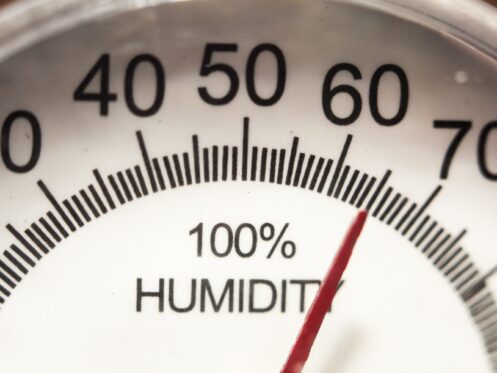Maintaining balanced indoor humidity is essential for both comfort and health. Too much moisture can lead to mold and allergens, while too little can cause dry skin, irritated sinuses, and even damage to wood furniture. That’s where dehumidifiers and humidifiers come in—but which one is right for creating ideal indoor air quality in your home?
Humidifiers vs Dehumidifiers
A dehumidifier removes excess moisture from the air, making it ideal for homes with high humidity. If you often notice condensation on windows, musty odors, or mold growth, your indoor air may be too damp. High humidity can also attract pests like dust mites and cockroaches, making a dehumidifier a great solution for improving air quality and overall comfort.
Homes in naturally humid climates or basements that feel damp year-round can particularly benefit from dehumidifiers. They help prevent structural damage caused by moisture while reducing allergens that thrive in humid conditions. While portable humidifiers and dehumidifiers are available, they are higher maintenance and not as effective at units that are installed as accessories integrated with your HVAC system. That’s because they have lower capacity and can only affect the air in single rooms instead of your entire house.
On the other hand, a humidifier adds moisture to the air, making it helpful for homes with dry conditions. If you frequently experience dry skin, irritated sinuses, static electricity, or cracked wooden furniture, your home may have low humidity levels.
This is especially common during winter when heating systems dry out indoor air. Running a humidifier helps maintain a comfortable environment, reducing issues like dry throat, itchy eyes, and even respiratory discomfort. Whole-home humidifiers can be integrated with your heating system for consistent moisture control, while portable units offer localized relief in specific rooms.
How to Determine Which You Need
The best way to decide between a dehumidifier and a humidifier is to measure your indoor humidity levels. A hygrometer, an inexpensive tool available at most hardware stores, can help you determine if your home’s humidity is too high or too low. Ideally, indoor humidity should stay between 30% and 50% for optimal comfort and health.
If your air feels heavy, damp, or smells musty, a dehumidifier can help. If you’re experiencing dry skin, throat irritation, or excessive static, a humidifier may be the better option. In some cases, homes may need both, depending on seasonal changes.
Improve Your Home’s Air Quality
Whether your home needs a humidifier, dehumidifier, or both, we’re here to help. At Alexander's Heating & Air Conditioning, we offer expert solutions to balance your indoor humidity, improving comfort and air quality year-round. Contact us today to find the right system for your home in Redmond, WA!


